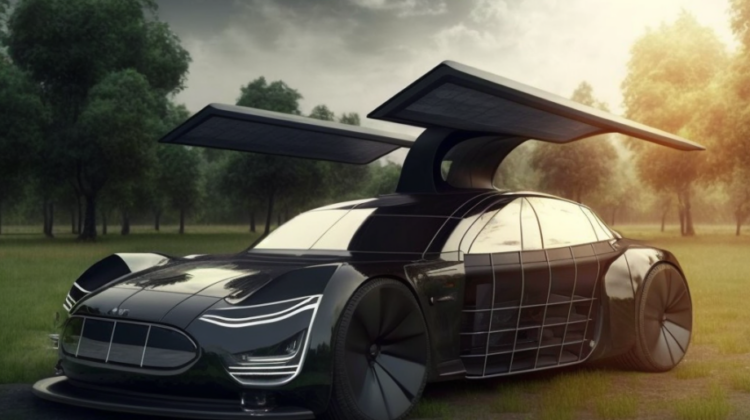
Electric cars powered by solar energy are the future of sustainable transportation. They are environmentally friendly and offer a clean alternative to traditional gasoline-powered vehicles. The combination of solar panels and electric cars has the potential to revolutionize the way we think about energy and transportation.
Electric cars are powered by batteries that store electricity. In the case of solar-powered electric vehicles, the batteries are charged by the sun’s energy. This energy is collected by solar panels, which are usually mounted on the roof of the car or a nearby building. The panels convert sunlight into electricity, then are stored in the car’s battery. The vehicle can be driven just like a traditional electric car when the battery is fully charged.
One of the most significant benefits of solar-powered electric cars is that they are much cheaper than gasoline-powered vehicles. The cost of electricity from the sun is much lower than gasoline, and electric vehicles are also much more efficient than traditional gasoline-powered cars. This means that solar-powered electric cars can save drivers significant money over the vehicle’s life.
In addition to being more cost-effective, solar-powered electric cars are also better for the environment. Unlike gasoline-powered vehicles, they emit no harmful pollutants into the atmosphere, which emit carbon dioxide and other contaminants. This makes solar-powered electric cars an excellent choice for anyone who wants to reduce their carbon footprint and help protect the planet.
Another benefit of solar-powered electric cars is that they are much more reliable than traditional gasoline-powered vehicles. The electric motor in an electric car is much simpler and more reliable than the internal combustion engine in a gasoline-powered vehicle. Solar-powered electric cars are less likely to break down and require fewer repairs, saving drivers time and money.
Solar-powered electric cars are also more convenient than traditional gasoline-powered vehicles. They can be charged at home using a solar panel or renewable energy at a charging station. This means drivers can easily find a gas station or deal with long lines at the pump. Instead, they can plug in their car and let it charge during their day.
Solar-powered electric cars are much quieter than gasoline-powered vehicles. The electric motor in an electric car produces very little noise, making for a much more peaceful and enjoyable driving experience. This is especially important for people who live in urban areas where noise pollution is a significant issue.
However, some challenges still need to be addressed before solar-powered electric cars become more widely adopted. The first challenge is the cost of the technology. Solar panels and electric car batteries are still relatively expensive, making it difficult for many people to afford a solar-powered electric car. However, as the technology continues to improve and become more widely used, the cost is expected to come down.
Another challenge is the need for more infrastructure for charging electric cars. While more charging stations are being built, gas stations still need to be more widespread. This can make it difficult for people to travel long distances in their solar-powered electric cars. However, as the number of electric vehicles on the road increases, more charging stations will likely be built to meet the demand.
Finally, there is still a perception among some people that electric cars are not as good as gasoline-powered cars. They may need help with the range of the vehicle, the amount of time it takes to charge, or the availability of charging stations. However, these perceptions will likely change as more people become familiar with electric cars and see their benefits.
Despite these challenges, the future of solar-powered electric cars is bright. The benefits of these vehicles are too great to ignore. As technology continues to improve, more and more people will likely embrace this clean and sustainable form of transportation.
Solar-powered electric cars represent a step forward in the fight against climate change. They offer a clean, sustainable, cost-effective alternative to traditional gasoline-powered vehicles. While there are still challenges to overcome, it is clear that solar-powered electric cars are the future of transportation. So if you’re looking for a way to reduce your carbon footprint and help protect the planet, consider switching to a solar-powered electric car.